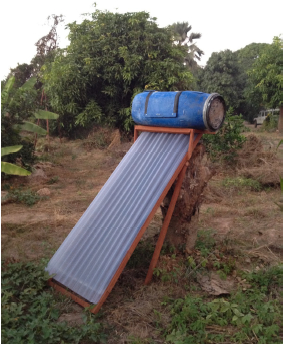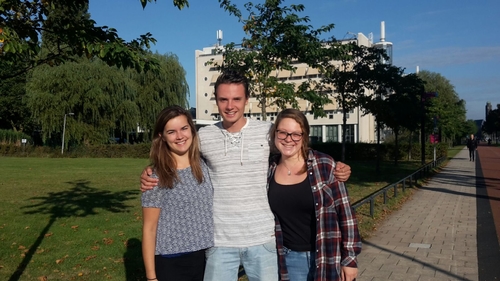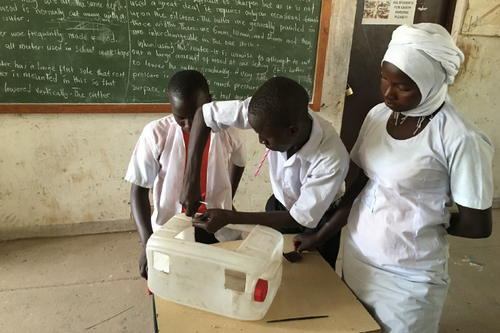One day in a corner of the world a light went on. An idea was born. Great minds had worked together to illuminate the world with a new phenomenon, electricity. The possibilities with this new technique were endless and nowadays we can’t imagine life without it. We, as motivated students from different study fields, believe illuminating ideas based on new technologies can change a world. In this project, we aim to familiarize Gambian people with the use of solar drying technology.
The mission:
Using this technology, leftovers of the harvest are no longer spoiled and with the right conserving techniques, even hunger in the hungry season might be overcome.
We are Emma Gründeman, Joost Verbart and Eva Loopik. We are students from different study fields (Emma studies Applied Physics, Joost studies Civil Engineering and Eva studies Public Management), who have joined hands to help Gambian people with their daily struggle for food and income. This program is supervised by the TU Delft and in close cooperation with a small Dutch NGO in The Gambia. We will be in The Gambia from November 2016 to February 2017. We absolutely can’t wait to carry out our project and make a difference!
History of the project
The TU Delft has previously sent students to The Gambia in 2013 and 2015 (There were also plans in 2014, but because of the outbreak of ebola this trip was cancelled). During these earlier projects, some prototypes of solar dryers have been made and in an agricultural region, farmers have become familiar with the technology. Solar drying systems make it possible to preserve the produce longer (spices, bananas, tomatoes) both for own consumption and for marketing purposes. The present design works rather well, so the step that we have to take know is to turn this bright idea into a success-story.
What are we going to do?
Our plan is to extend and slightly adjust the latest solar dryer design of last year. A solar dryer roughly consists of two parts, an air-heater, which causes hot air to rise, and a drying box with the fruits and vegetables. Instead of a solar dryer with a width of one metre, we are going to build a large solar dryer that is 8-10 metres wide. Another change we will make is not to rigidly adjust one drying box, but to make space for 16 to 18 drying boxes of 0.5 metre wide. These boxes can be placed on the air heater separately. People can make their own drying box of materials they mostly have at home (a jerrycan and mosquito net) or they can buy it one from local craftsmen. They can rent space on the air-heater at the local owner, who can use this money for the maintenance and repair of the air-heater and as an income. People can sell their dried fruits and vegetables at the local market, or store them for the “hungry” season. In this way, a business model is incorporated with the idea, an important requirement for a sustainable plan.
The previous design of the solar dryer
Knowledge transfer by co-creation
During the development of the solar dryer and the follow-up workshops, we are convinced that it is essential to take every step together with the local people. They will be incorporated with the design and with the building of the solar dryer, as well as the preparation for the workshops. Even though the designing and building might not go flawless, we think it’s essential that we learn from our mistakes together, not just us three. After constructing the solar dryer, follow-up workshops will be given. These will mostly be cooking workshops with the local women (how do we implement dried fruits and vegetables in local recipes) and solar drying workshops at local schools, both high- and primary schools. Not only will these workshops give people knowledge and experience, it will also be lots of fun for everyone!
Our dream
Our main goal is to build a business with a large solar dryer and to transfer all the knowledge that we have about solar drying so the continuity of the project can be guaranteed. Our dream is that this project will be so successful, that in ten years’ time, harvests will no longer be spoilt, economy in dried fruits and vegetables will be flourishing and the hunger in the hungry season will have decreased. With hard work and devotion, only time will tell!
Follow us!
You can follow project DOMO on Facebook now!

